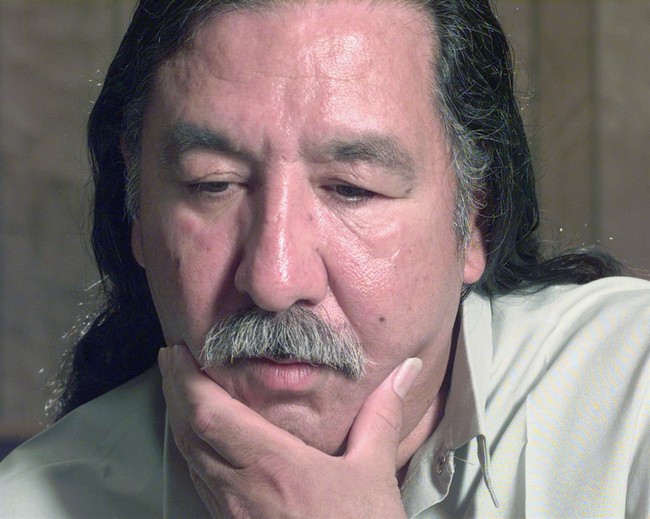
By Richard F. Stout, Jr.
On January 19, 2025, Leonard Peltier — convicted for his role in the execution-style murders of FBI Special Agents Jack Coler and Ronald Williams — was granted clemency by President Joe Biden. The commutation, issued in the final hours of Biden’s presidency, blindsided the law enforcement community and reignited long-standing wounds within the FBI family. But as raw as that moment felt, time has brought a new perspective, and more troubling questions.
Peltier was convicted in 1977 for his involvement in the brutal ambush and murder of two young FBI agents on the Pine Ridge Reservation. He did not act alone, but he was held accountable for firing the fatal shots at point-blank range, as the agents lay wounded, stripped of defense.
Over the years, Peltier’s case became a symbol—not of guilt or innocence, but of narrative. Activists painted him as a political prisoner. Celebrities and public figures called for his release, and Robert Redford even directed a documentary about him. But courts, judges, and four presidents — Bill Clinton, George W. Bush, Barack Obama, and Donald Trump —consistently upheld his conviction.
So why now? Why, after decades of clarity, did Joe Biden say yes?
Back in January, I penned an open letter titled “Biden Kicks the FBI in the Teeth on the Way Out the Door.” It was a direct, emotional piece forged in the heat of disbelief. For those of us who spent our careers pursuing justice — those who held the hands of victims’ families, who buried fallen partners, and who carried the badge through thick and thin — it felt like betrayal.
I meant every word.
But as the weeks turned to months, I found myself drawn not just to the pain of the act, but to the mystery behind it. What if President Biden didn’t know where he was walking or who he was walking over? To put it plainly: what if someone else had the pen? The official clemency order bears the signature of President Biden, but what it does not tell us is how that signature was applied. Was it handwritten by the President himself, or was it replicated by an autopen on the authorization of staff?
The autopen is not inherently controversial. It’s been used for years to sign ceremonial documents, routine authorizations, and even legislation when the President explicitly authorizes it.
But clemency is different. It’s not ceremonial. It’s an irreversible act of mercy, judgment, and executive power. Clemency rightly carries with it a rigorous process from the petitioning stage to legal reviews and senior advisors giving their thoughts. The White House Counsel’s Office often makes final recommendations and, if clemency is granted, the paper trail exists.
So where is the paper trail with Peltier’s pardon? Who reviewed his file? Who briefed President Biden and who signed off — or, really, signed — the final pardon?
Clemency requires deliberation. It demands accountability. We got none in case of Leonard Peltier. There was no public comment from President Biden about Peltier before January 19, nor any telegraph of the move. No press release, no interview, no op-ed explaining his reasoning, no briefing for the Bureau, no outreach to the families of Coler and Williams. Nothing.
This is about trust, not vengeance. This is about process, not politics. This is about the assurance that, when our most sacred institutions act, they do so within the letter of the law and with full awareness of the consequences of their actions. In my law enforcement career, I’ve lost friends, colleagues, and mentors. Their names are etched not just in granite, but in my heart and the hearts of those who served beside them. I’ve seen firsthand the cost of duty. I’ve sat with grieving families, attended funerals filled with solemn honor, and carried the enduring responsibility of ensuring that justice remains more than a concept — it is a promise kept.
Jack never got to raise his son. His closest friends—retired agents still carry the weight of that week, 50 years later. Ron is remembered not as a name on a plaque, but as a friend, a peer, and a man who answered the call and paid the price. When Leonard Peltier or someone like him walks free through the held door of bureaucracy, it sends a message that law enforcement lives are negotiable. It tells our law enforcement professionals that murder can be reconsidered and criminals are placed above the very laws they break.
A convicted FBI agent killer is now on the street. Not because new evidence came to light or because a court overturned his conviction.
No, this decision was one of political convenience for a departing president without regard for those who risk their lives protecting every American — including Joe Biden himself.
Richard F. Stout, Jr. is a retired FBI Special Agent and founder of Reform the Bureau, a national group of former and current agents advocating for integrity, oversight, and accountability in federal law enforcement.








